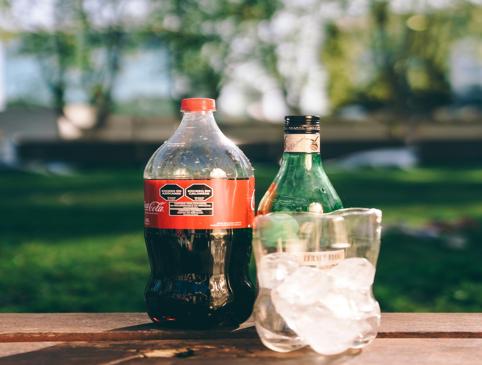8 Foods Athletes Must Avoid

8 Foods Athletes Must Avoid for Peak Performance
Even the most disciplined training program can fall short if your nutrition doesn’t support recovery, energy, and performance. While balance and moderation are key, certain foods and drinks can undermine your athletic potential by increasing inflammation, disrupting hydration, or impairing muscle function. Below are eight foods and ingredients athletes should limit-or avoid altogether-to perform and recover at their best.
1. Sports Drinks (Except During Extended Training)

Sports drinks are often marketed as performance boosters, but for most training sessions under an hour, they’re unnecessary. These drinks are typically loaded with added sugars and artificial ingredients. For workouts lasting less than 60 minutes, water or naturally flavored electrolyte options are best. Save sports drinks for long endurance sessions, races, or training in extreme heat, when fluid and electrolyte losses are significant.
2. Soda
Soda provides calories without nutrition—nearly 10 teaspoons of sugar per can-and can quickly displace healthier choices. Regular consumption contributes to weight gain, insulin spikes, and calcium loss, particularly from dark-colored sodas containing phosphorus. Even diet sodas can disrupt metabolism and appetite regulation. For carbonation, try sparkling water with citrus slices or a splash of 100% fruit juice instead.
3. Protein and Energy Bars

While convenient, most protein and energy bars are highly processed and packed with added sugars, artificial sweeteners, and saturated fats. Whole foods are a better choice for sustained energy and recovery-think fruit with nuts, or yogurt with berries. Excessive protein intake can strain the kidneys and may even affect bone health over time. Choose bars only when needed for travel or emergencies, and opt for those made from recognizable, whole-food ingredients.
4. Saturated and Trans Fats
Foods made with hydrogenated oils or containing trans fats raise LDL (“bad”) cholesterol and lower HDL (“good”) cholesterol, increasing cardiovascular risk—even for highly active athletes. Instead, emphasize healthy fats from avocados, nuts, seeds, olive oil, and fatty fish like wild salmon or sardines, which support heart health, brain function, and recovery.
5. Excess Carbohydrates
Carbohydrates are essential for endurance athletes, but quantity and quality matter. Overdoing refined carbs or heavy, high-fat “carb-loading” meals can leave you sluggish and bloated. Focus on complex carbohydrates such as quinoa, oats, sweet potatoes, and brown rice, and keep pre-race portions moderate to support digestion and steady energy release.
6. Too Much Fiber Before Competition

Fiber is important for long-term health, but eating high-fiber foods right before intense training or competition can cause gastrointestinal distress. In the 24 hours leading up to a race or event, reduce intake of beans, lentils, cruciferous vegetables, and very fibrous grains. Choose lower-fiber options such as oatmeal, white rice, or a banana for easier digestion.
7. Excessive Caffeine

A moderate amount of caffeine can enhance alertness and performance, but too much can cause dehydration, jitteriness, and sleep disruption. Limit caffeine to no more than 300 mg per day (about two strong cups of coffee). Avoid energy drinks or pre-workout products with hidden or unlisted caffeine sources, and never rely on caffeine to mask fatigue or poor recovery.
8. Alcohol

Alcohol interferes with muscle recovery, impairs hydration, and slows reaction time for up to 72 hours after consumption. It also disrupts sleep quality, making it harder for the body to repair and rebuild. While occasional moderation is fine, consistent drinking can undermine months of training progress. Prioritize rehydration and nutrient-dense meals after workouts instead of alcohol-based “rewards.”
Final Thoughts
A strong nutrition foundation is built not only on what you include-but also on what you limit. Avoiding overly processed, sugary, and inflammatory foods helps the body recover efficiently, maintain energy balance, and perform at its highest potential. Occasional indulgences are fine, but make sure your daily habits align with your performance goals. Fuel wisely, and your body will reward you in training, competition, and long-term health. Want to dial in your race plan? (Click here) to schedule a session with Barbara.
